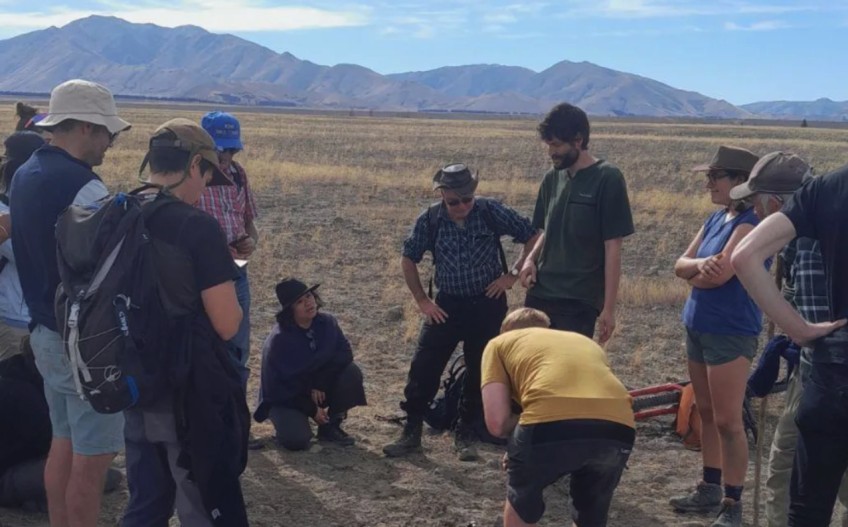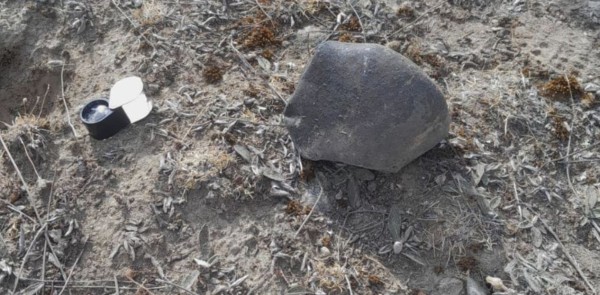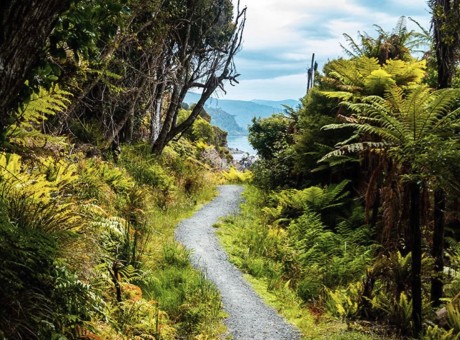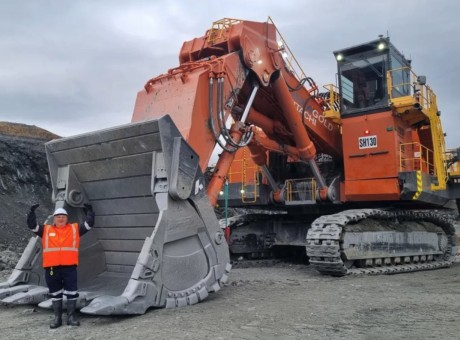Queenstown spa pool sighting leads to meteorite recovery

Aotearoa's 10th meteorite has been discovered on Crown land in the South Island's Mackenzie Country by a group of eagle-eyed citizen scientists.
The space rock entered Earth's atmosphere at a speed of 50 to 60 kilometres per second on 13 March.
It was spotted by Dennis Behan, a member of Fireballs Aotearoa, who was relaxing in his spa bath in Queenstown when it tore through the atmosphere.
About 20 searchers set off this morning to find the rock, south of Lake Tekapo.
They were now celebrating at the pub after coming across the meteorite before the search-proper had even got underway.

The rock, believed to be a meteorite, sitting on a glacial plain south of Lake Tekapo. Photo: Supplied / Steve Wyn-Harris
Fireballs Aotearoa citizen scientist Steve Wyn-Harris excitedly recounted the tale.
"We had hoped to get more [volunteers] to search because it was such a big area to search - 200 or 300 hectares - and we found it. We found it on our way to the search area," Wyn-Harris said.
Jack Weterings, one of the volunteers, had spotted the meteorite.
Fireballs Aotearoa citizen scientist Steve Wyn-Harris holding onto the rock after it has been packaged up to protect from hands and the environment. Photo: Supplied / Steve Wyn-Harris
"It is a bit like a needle in a haystack and where we were on a big glacial plain covered in stones and very little vegetation, but this particular stone stood out," Wyn-Harris said.
"It looked a bit like a piece of coal - a dark, black stone amongst a whole lot of grey, greywacke. It had embedded itself into the ground. It was in a small crater. We think this stone is about a kilo in weight."
Geologist Marshall Palmer inspected it and was very excited by the find.
Fireballs Aotearoa director James Scott had also inspected it remotely from Germany and was equally excited and Palmer's initial analysis of the rock showed it was very high in nickel.
"Which is almost confirmation it's a meteorite," Wyn-Harris said.
The rock would now make its way to Otago University to confirm its extra-terrestrial origins, but they were 99 percent sure they had found the meteorite.
"We found the bastard and this is not just my Everest but Fireballs Aotearoa, who have co-ordinated the search and whose cameras allowed the maths and physics to be done to know where to search, but also a small group of volunteers from the Tekapo community," Wyn-Harris said.
In exchange for giving up ownership of the meteorite, Weterings had been gifted a fireballs camera so he could join the citizen sleuths with an eye on the sky.
Meteorites which landed on private land became the property of the land owner, but those found on public land were subject to the law of finders-keepers.






















